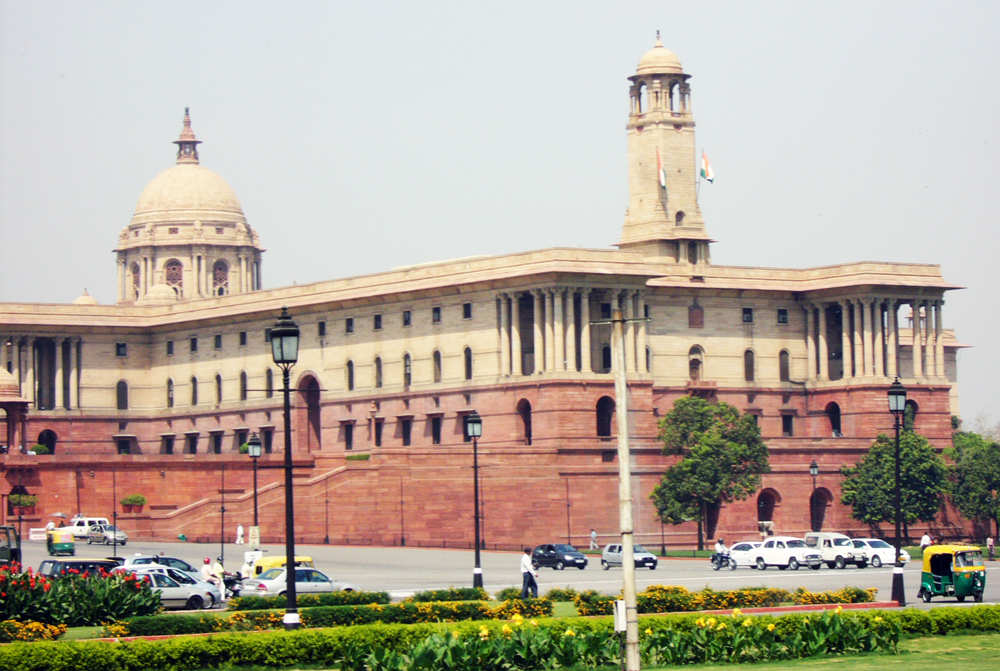by Jagdish N. Singh
In other words, Muslim women must enjoy the same rights as other women in India.
- The All India Muslim Personal Law Board has argued that the bill amounts to interference with religious law, and therefore violates the Constitution of India. This objection might be thought of as disingenuous. According to Article 44 of the Constitution, "The State shall endeavour to secure for the citizens a uniform civil code throughout the territory of India."
- By contrast, triple talaq is a unilateral, arbitrary tool in the hands of men against women, a condition what that is simply not acceptable in modern India.
- For decades, Indian courts have upheld the precedence of Muslim women's right to equality over Muslim Personal Law. The court ruled in 1985 that the denial of alimony was a violation of Bano's fundamental rights, regardless of her religion, and that triple talaq ran contrary to those rights. In other words, Muslim women must enjoy the same rights as other women in India.
- India's Parliament must do the right thing for the country's Muslim women, as it did nearly 64 years ago for the country's Hindu women. Until the passage of the Hindu Marriage Act, 1955, Hindu women in India were not at liberty to divorce their husbands, while Hindu men were free to engage in polygamy. It will be a shattering miscarriage of justice if oppositionist politicians succeed in blocking this much-needed bill.

The Indian Parliament building in New Delhi. (Image source: Shahnoor Habib Munmun/Wikimedia Commons)
|
The Narendra Modi government in New Delhi deserves applause for passing the Muslim Women (Protection of Rights on Marriage) Bill, 2018, which criminalizes the practice of "triple talaq" -- a medieval, patriarchal divorce procedure still in use in many Muslim communities in India and abroad. All this procedure requires for a man to divorce his wife is to repeat the word "talaq" three times.
In order for the bill -- passed by India's Lower House of Parliament (Lok Sabha) on December 27, 2018 -- to be written into Indian law, it needs approval by the Parliament's Upper House (Rajya Sabha).
In an attempt to keep this from happening, radical Islamist groups, such as the All India Muslim Personal Law Board (AIMPLB), are attempting to join forces with opposition parties to torpedo the bill. Oppositionists on the left have accused the bill of violating fundamental human rights and of constituting "an assault on the Muslim family structure."
Meanwhile, the AIMPLB has argued that the bill amounts to interference with religious law, and therefore violates the Constitution of India.
This objection might be thought of as disingenuous. According to Article 44 of the Constitution, "The State shall endeavour to secure for the citizens a uniform civil code throughout the territory of India."
By contrast, triple talaq is a unilateral, arbitrary tool in the hands of men against women, a condition what that is simply not acceptable in modern India. For decades, Indian courts have upheld the precedence of Muslim women's right to equality over Muslim Personal Law.
Take, for example, the decades-old milestone case of Shah Bano, a Muslim woman whose husband of many years, divorced her through triple talaq and not only banished her and their five children from the family home, but ceased paying her the small sum in alimony that he had promised. In its 1985 judgment on the issue of alimony, the Indian Supreme Court deplored the treatment of Bano by her husband. The court wrote:
"The Muslim husband enjoys the privilege of being able to discard his wife whenever he chooses to do so, for reasons good, bad or indifferent, indeed for no reason at all. And, is the law so ruthless in its inequality that, no matter how much the husband pays for the maintenance of his divorced wife during the period of iddat [period of chastity a divorced woman must observe before she is allowed to remarry], the mere fact that he has paid something, no matter how little, absolves him forever from the duty of paying adequately so as to enable her to keep her body and soul together?"The court ruled, already in 1985, that the denial of alimony was a violation of Bano's fundamental rights, regardless of her religion, and that triple talaq ran contrary to those rights. In other words, Muslim women must enjoy the same rights as other women in India.
Nevertheless, the then-Rajiv Gandhi government backtracked somewhat and adopted the Muslim Women (Protection of Rights on Divorce) Act, 1986, which restricted alimony to the period of iddat.
More recently, in December 2016, the Allahabad High Court dismissed the writ of an elderly Muslim man who had divorced his first wife by means of triple talaq and felt threatened by his new wife's family. The court called triple talaq "cruel and the most demeaning form of divorce practised by the Muslim community at large. Women cannot remain at the mercy of the patriarchal setup held under the clutches of sundry clerics; personal laws of any community cannot claim supremacy over the rights granted to individuals by the Constitution."
It is unfortunate that successive governments in India have overlooked the need to ban the practice of triple talaq. The Modi government is trying to rectify that.
India's Parliament must do the right thing for the country's Muslim women, as it did nearly 64 years ago for the country's Hindu women. Until the passage of the Hindu Marriage Act, 1955, Hindu women in India were not at liberty to divorce their husbands, while Hindu men were free to engage in polygamy.
The fate of Muslim women in India is now in the hands of the Upper House of Parliament. It will be a shattering miscarriage of justice if oppositionist politicians succeed in blocking this much-needed bill.
Jagdish N. Singh is a senior journalist based in New Delhi.
Source: https://www.gatestoneinstitute.org/13648/india-muslims-divorce-law
Follow Middle East and Terrorism on Twitter
No comments:
Post a Comment